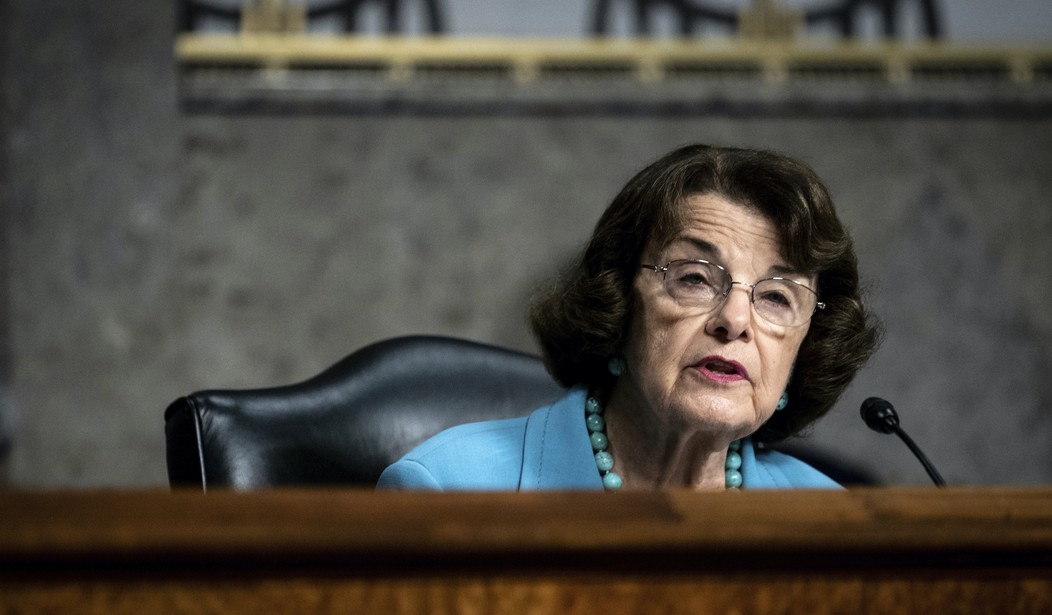Anti-gun politicians on Capitol Hill have sent a letter to President Joe Biden demanding that he get to work on his gun control agenda, starting with appointing a permanent director of the Bureau of Alcohol, Tobacco, Firearms, and Explosives. The letter, signed by California’s Dianne Feinstein, Maryland Sen. Chris Van Hollen, and several other lawmakers, urges Biden to “quickly nominate” someone “who is committed to increasing public safety, working with federal partners to investigate domestic terrorists, providing robust oversight of the firearms industry, and tackling our nation’s gun violence epidemic.”
The new missive by Feinstein and her anti-gun allies in Congress offers up a wish-list of action items for whoever Biden eventually taps to run the ATF.
1. Implement regulations to stop the proliferation of ghost guns.
The ATF has wrongly determined that critical federal and state gun safety laws, such as background checks, do not apply to “unfinished” frames or receivers that can be easily converted into functioning firearms. Ghost guns are untraceable firearms constructed by individuals using unfinished gun components and are often sold as easy-to-assemble kits that are completely unregulated. ATF estimates that approximately 10,000 ghost guns were recovered by law enforcement in 2019. Likewise, in Washington, D.C., three ghost guns were recovered by police in 2017, 116 in 2019, and by December 17, 2020, over 280.
The ATF hasn’t “wrongly decided” anything. The Gun Control Act of 1968 defines a firearm as:
(A) any weapon (including a starter gun) which will or is designed to or may readily be converted to expel a projectile by the action of an explosive; (B) the frame or receiver of any such weapon; (C) any firearm muffler or firearm silencer; or (D) any destructive device.
Feinstein and other gun control activists want the ATF to re-interpret the language of the GCA to include unfinished frames and receivers, though there’s no easy way for the agency to do that without inviting a lawsuit. Still, this has quickly become one of the top priorities for gun control activists, which see it as a more politically popular idea than a ban on so-called assault weapons.
2. Issue a new regulation clarifying which gun sellers must get dealer licenses and run background checks.
The Brady Handgun Violence Prevention Act requires anyone “engaged in the business” of selling guns to obtain a federal license. The current regulation defining this term is vague and has allowed private individuals to illegally sell dozens, or even hundreds, of firearms without life-saving Brady background checks or oversight.
Again, Feinstein and her anti-gun colleagues seem to have a problem with a law that they actually voted for, and now want the ATF to step in and change the law without Congress having to lift a finger.
3. Modernize, strengthen, and prioritize oversight of the gun industry.
Tens of thousands of guns are trafficked into cities and into the hands of criminals every year. These guns can enter the illegal market through a variety of channels. The federal government must create the standards for regulating the gun industry. According to the most recently available data, a small percentage of gun dealers are responsible for the overwhelming majority of recovered crime guns, yet the ATF frequently allows these businesses to continue transferring firearms to the public without repercussion. The ATF must take steps to crackdown on bad apple gun dealers such as revoking licenses from dealers that consistently break federal laws, revising its internal standards for taking action against negligent Federal Firearms Licensees (FFLs), strengthening the application process to obtain or renew an FFL, and increasing record keeping requirements.
In other words, put more regulatory burdens on federal firearms licensees and revoke their licenses over the most minor of paperwork violations. That may put a lot of independent gun stores out of business, but it would do nothing to stop violent criminals.
4. Ensure public transparency by disseminating robust statistical data.
Since 2003, the ATF has cited a narrow interpretation of federal appropriations riders, known as the Tiahrt Amendments, as a restriction on its ability to share data on crime guns. The ATF must clarify that the appropriations riders do not restrict the Agency’s ability to publish or release aggregate data on crime guns and gun trafficking;
The ATF already puts out reports on the firearms it has traced. You can find the 2019 data right here, and the 2020 data should be available within a few months. Perhaps Feinstein isn’t aware of this, but it’s unclear what additional data Feinstein and her colleagues want released to the public.
5. Update critical reports and develop new ways to affirmatively share information about gun trafficking and the source of crime guns.
The ATF annually publishes its Firearms Commerce in the United States report, however, since the 2001/2002 edition this report has only provided information on the firearms industry and ATF’s regulatory role. Previously this report included detailed aggregate data about how firearms are diverted from FFLs to the illegal market, information that is invaluable to researchers and lawmakers. Additionally, the ATF has not updated its gun trafficking report, Following the Gun: Enforcing Federal Laws Against Firearms Traffickers, since 2000. This report reviewed the agency’s trafficking investigations and their dispositions by prosecutors and courts. This report should be reissued annually and updated to include aggregate data on ghost guns…
I don’t actually have a problem with this, though we know gun control activists will spin whatever data the ATF produces in order to advance their anti-gun agenda. Still, as long as the ATF is putting out factual data then Second Amendment activists will be able to use that research to point out that criminals are obtaining guns illegally through a variety of means.
6. Require FFLs to notify the Department of Justice every time they complete a gun sale where a background check has been initiated but not completed to ensure the prioritization of completing background checks where a sale has been made.
Again, more paperwork and regulations for federal firearms licensees.
While Biden has named all of his cabinet-level appointees, the president has been silent when it comes to his pick for ATF director. The position has been without a permanent head since 2015, when director B. Todd Jones left the agency to join the NFL as the league’s new disciplinary officer.
One of the biggest disappointments of the Trump administration, at least from my perspective, is the fact that Trump never appointed a permanent director who would clean up the agency and its abuses. Instead, he allowed the career bureaucrats that had been running the ATF to remain in place without a watchdog to oversee the agency. Now that Joe Biden’s in the White House, the ATF is expected to play a big role in his gun control plans, with or without a permanent director in charge.
Editor’s Note: Want to support Bearing Arms so we can tell the truth about Joe Biden and the Left’s radical gun control agenda? Join Bearing Arms VIP. Use the promo code GUNRIGHTS to get 25% off your membership.









Join the conversation as a VIP Member